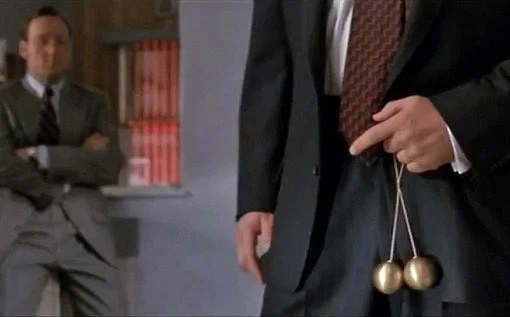3 Improv Skills Every Salesperson Needs
The art of sales is a lot like the art of improv. Both disciplines require training and practice in heightened communication skills. They also require a vulnerability, wherein participants put themselves out there, hoping to succeed, but with no guarantee. Neither improv nor sales is easy, and achieving success in either one is a satisfying accomplishment. Because of my dual careers as an improv performer and as a salesperson, I quickly learned the techniques that transcended from stage to selling. Here are 3 important lessons that I took from my improv practice to my sales work which elevated my career and made selling a hell of a lot easier.
1. Be a Chameleon
When performing improv for stage, you never know what you are walking into. You have to be ready to be whatever you need to be for your partner and the scene. You must be flexible and willing to change whenever your partner or the scene calls for it.
In sales, this same concept can be applied to meeting clients or prospects. I stretch this muscle a lot on stage, so using it in my job became second nature. Don’t look at it as being fake or acting though. It goes way beyond that. By taking in the other person-knowing your audience, you are sizing up what is needed to move forward and progress. I believe anyone in business can appreciate a focus on that. It does not mean you walk into a meeting pretending to be football player because you see an MVP trophy on someone’s desk. It means that if you notice that your client is guarded and “all business”, then you skip all the fluff and be exactly what he’s asking you to be, straight-up and to-the-point. More than anything, you are being selfless and putting their needs first. Still be you, just be willing to change.
2. Stare Into My Eyes
This one is simple folks. In improv for stage one of the first things I learned was to stare someone in the eyes until it was weirdly uncomfortable. In fact, there was an exercise we did that was nothing more than staring into someone's eyes. The purpose of this exercise is so that over time it got less and less awkward. On stage, if you begin a scene with some concentrated eye contact, there is almost this immediate vow to trust each other and to get each other’s back. Ever been in a conversation with someone who refused to make eye contact? It's straight up awkward. In sales, this eye contact business goes a long way. I’ve been told on more than one occasion that in business, people expect eye contact from someone in order to trust. Hello? Sales and trust are kind of best buddies.
3. Expect the Unexpected
Improv is about everything unexpected. On stage, I could be thrown into any scenario, “So, you want me to be a superhero, whose super power is blowing confetti, and my mission is to save the world from twerking?” It’s never cut and dry, constantly changing and sometimes not sexy. What you begin to practice and to perfect is the ability to roll with it. Take it and commit 100% to whatever curve ball is thrown at you.
Sales people get a ton of unexpected punches and curve balls. You are at the mercy of your customers and prospects. I used to work for a company who sold cell site build services to big cellular providers. A business friend set me up to meet with a promising prospect, who happened to be his long time neighbor. I was pumped, confident and feeling like I was already half-way in. I walked into the company break room, where Mr. Prospect sat waiting for me from across a break room table. I sat, smiled, made eye contact (not the long awkward stage kind, just the let him know I could be trusted kind). I could tell he wasn’t a big talker, and he did not want to talk about me or him, so I tried to jump right into the meat of it. I was probably a few sentences in when I noticed his head lying on the table like a high school student in the class room on a boring film day when the teacher needs to catch up on work. I proceeded to try and make a joke in an effort to reel him in, at which point he lifted his head from the table only to plop it back down on the table, over and over again. It was pretty much like he was hitting his head on the table. At that point, two curve balls in, I just decided to acknowledge the obvious. I said “Mr. Cell Site Build Guy, you seem really bored, and you don’t really want to hear all of this do you?” For the first time in our brief meeting, I had his attention. He simply looked up and said, “No, I don’t, you’re right. I only did this as a favor to my neighbor,” then he smiled. So, I packed myself up, and headed out of one of the shortest and oddest meetings ever. From that point on, I never had a preconceived idea or plan for anyone I met with, and I learned to expect the unexpected.
There are a slew of other improv techniques that I have carried from the stage to my sales life. The correlation between the two is really simple. If two people trust each other, connect, listen and navigate the unexpected, an amazing relationship will flourish. A good relationship is at the heart of every improv scene and sale.
Kristy West is the Founder of BraveSpace in Atlanta, GA. She shares her passion for applied improvisation with teams and people to help them communicate in more meaningful ways through interactive and engaging learning.

